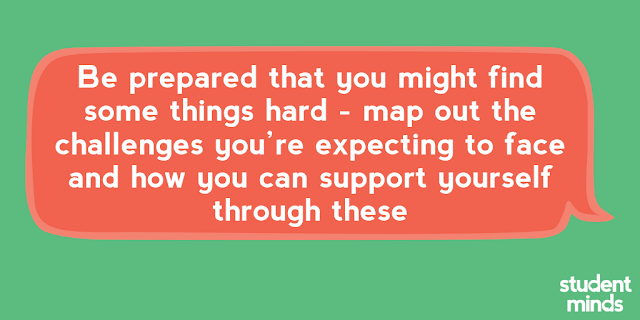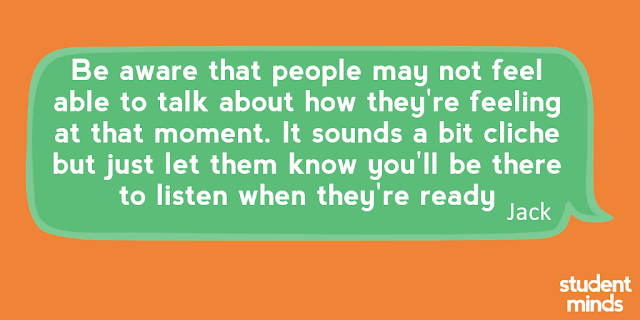We took to social media to see how students best support themselves and others on their journey through university.
Supporting yourself
Going to university is a big transition for everyone; it is an experience that doesn’t compare to anything else. It is normal for the change to unsettle you. You can’t necessarily stop these uncomfortable feelings but being aware of them, and preparing ways to manage these emotions when they do pop up, can help to prevent small discomforts from escalating.
If you have this knowledge in place before you go, you won’t have to figure these things out at the point when you need them. Look into what resources your university has to help students and how to access these if you need them.
If you feel like things are starting to go downhill, remember that support does exist: whether that’s talking to friends and family or accessing student support services at your university.
Working on your self-awareness by regularly checking in with yourself may give you the confidence you need to be able to know that you need to reach out.
If you need urgent help, Samaritans are there 24/7 to listen to you and you can find out more about the different support available at university here.
Supporting others
Look out for signs that someone is struggling and let them know that you’re there to chat. Don’t pressure people to talk if they’re not ready, give them time and space to talk in their own time.
You can show others that it is okay and normal to talk about what you’re struggling with - they shouldn’t feel ashamed or isolated and setting that example can help others open up.
Our Look After Your Mate guide touches on many topics surrounding maintaining supportive friendships at university, from starting difficult conversations and tips for freshers, to understanding your friend’s diagnosis.
Make sure you’re in a good place to offer support, just like they say on aeroplanes: put your own airmask on first before helping others. Find out our tips on looking after yourself whilst supporting someone else here.
If you do feel able to help, and want to be part of a wider support network at your university, why not find opportunities to get involved with mental health activities on campus? From campaigning to volunteering to run a peer-support group, many universities have options available for students to get involved in.
Look out for yourself and each other to reduce the #FresherPressure of going to university!
For more information, see Student Minds' tips on starting university, and read more about student’s experiences here.
Alys has produced content as the Communications Intern at Student Minds, passionate to share student voices in creative and engaging ways. She is going into her second year studying Sociology and sporadically writes about mental health over at www.alysjournals.com.
For more information, see Student Minds' tips on starting university, and read more about student’s experiences here.
Alys has produced content as the Communications Intern at Student Minds, passionate to share student voices in creative and engaging ways. She is going into her second year studying Sociology and sporadically writes about mental health over at www.alysjournals.com.










Thumbs up!
ReplyDelete